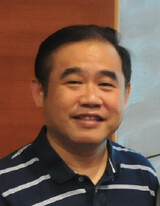Terapeutic potential and mechanism of cytopiloyne
Cytopiloyne was identified as a novel polyacetylenic compound. However, its anti-diabetic properties are poorly understood. The aim of the present study was to investigate the anti-diabetic effect and mode of action of cytopiloyne on type 2 diabetes (T2D). We first evaluated the therapeutic effect of cytopiloyne on T2D in db/db mice. We found that one dose of cytopiloyne reduced postprandial glucose levels while increasing blood insulin levels. Accordingly, long-term treatment with cytopiloyne reduced postprandial blood glucose levels, increased blood insulin, improved glucose tolerance, suppressed the level of glycosylated hemoglobin A1c (HbA1c) and protected pancreatic islets in db/db mice. Next, we studied the anti-diabetic mechanism of action of cytopiloyne. We showed that cytopiloyne failed to decrease blood glucose in streptozocin (STZ)-treated mice whose cells were already destroyed. Additionally, cytopiloyne dose-dependently increased insulin secretion and expression in cells. The increase of insulin secretion/expression of cytopiloyne was regulated by protein kinase C (PKC) and its activators, calcium and diacylglycerol (DAG). Overall, our data suggest that cytopiloyne treats T2D via regulation of insulin production involving the calcium/DAG/PKC cascade in cells. These data thus identify the molecular mechanism of action of cytopiloyne and prove its therapeutic potential in T2D. The invention of Bidens pilosa-based formulation was licensed to Exland Biotech Co. for R&D of botanical drug for diabetes.同研究人員:Cicero Lee-Tian Chang, Hsien-Yueh Liu, Tien-Fen Kuo, Yi-Jou Hsu, Ming-Yi Shen, Chien-Yuan Pan, and Wen-Chin Yang

Kuo-Chen Yeh
Distinguished Research Fellow and Director
(02) 2787-2056
kcyeh@gate.sinica.edu.tw
A529, Agricultural Technology Building
Lab.
A526, Agricultural Technology Building
Tel: (02) 2787-2054
Director (2019.1.16-present)
Interim Director (2016.10.1 -2019.1.15)
Director/Coordinator of Molecular and Biological Agricultural Sciences program of Taiwan International Graduate Program (TIGP-MBAS), Academia Sinica (2015-2020)
Distinguished Research Fellow (2024-present)
Research Fellow (2014-2024)
Associate Research Fellow (2009-2013)
Assistant Research Fellow (2001-2009)
PDF Howard Hughes Medical Institute and Department of Biological Sciences, Stanford University, USA (1999-2001)
Ph.D. Plant Biology Graduate Group, University of California, Davis, USA (1994-1999)

